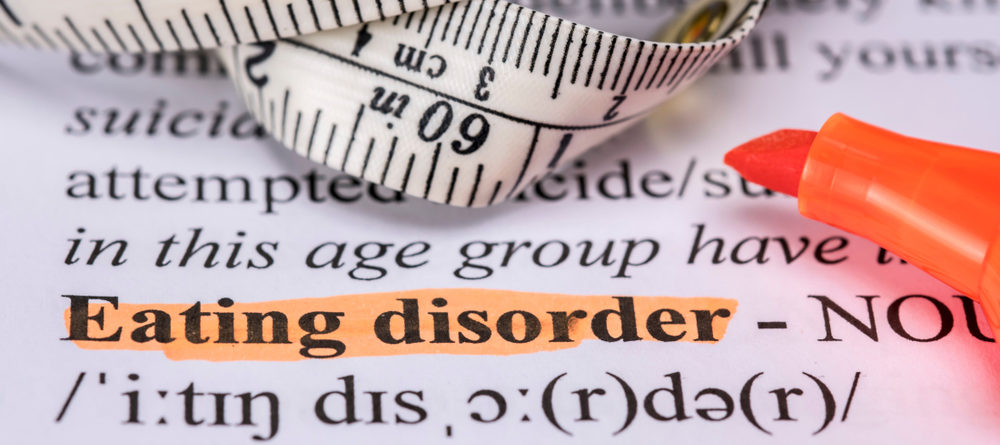What Is an Eating Disorder?
American diet culture, widespread fatphobia and a societal mindset that equates thinness with beauty have all created an ideal environment for eating disorders like anorexia, bulimia, binge eating and avoidant food intake disorder to flourish. Attempting to manage an unrealistic body image with repetitive, restrictive behaviors can significantly affect a person’s life.
While the stereotypical image of someone with an eating disorder is a young, white woman, this health problem can affect anyone, regardless of age or gender. Another myth is that eating disorders are a deliberate choice, but they signify a severe mental health issue.
What Causes Eating Disorders?
There isn’t one specific cause of eating disorders – rather, these complex conditions develop due to a combination of biological, psychological and cultural variables. Due to the interplay among these factors, two people with the same eating disorder can have different experiences and symptoms.
Eating disorder risk factors include the following.
- Perfectionism: One of the strongest predictors of an eating disorder is having unrealistic expectations.
- Distorted body image: People who develop eating disorders are more likely to report higher levels of body image dissatisfaction.
- Mental health disorders: Eating disorders frequently develop alongside mental health challenges like anxiety, social phobia and OCD.
- Loneliness: Social isolation is another characteristic of eating disorders, as people with irregular eating and feeding patterns may have fewer friends, low self-esteem and less social support.
- Internalized fatphobia: Many young women and men grow up believing that only people with a specific body image can be healthy and attractive. While the media have made progress in showing diverse bodies, there is still work to do to instill confidence and a positive self-image among impressionable children and teenagers.
How to Recognize a Problem
Anyone can develop an eating disorder, but young adults can be especially vulnerable to this mental health problem, due to hormonal changes during puberty and peer pressure to maintain specific body image standards. Though eating disorders are prevalent in girls and young women, as many as one-third of men will develop an eating disorder at some point in their lives.
Though the behavioral warning signs can vary by person and the type of eating disorder they have, here are some general things to look for.
- Obsession with body weight, calorie and fat intake
- Feelings of guilt or self-loathing about food and appearance
- Vomiting or taking laxatives after meals
- Low self-esteem and an unrealistic body image
- Skipping meals entirely, or only eating small amounts
- Unwillingness to eat in front of others
- Eating large amounts of food, often to the point of discomfort
- Only feeling comfortable eating a small range of foods, and getting distressed about going outside that comfort zone
- Cooking for other people, but not eating anything themselves
- Preoccupation with weighing themselves and checking in the mirror for flaws
- Mood swings
- Cutting out entire food groups or switching diet plans to lose more weight
- Desire for perfection
- Refusal to participate in usual activities
- Making self-disparaging comments
- Compulsively exercising, even if they are sick or injured
- Brittle hair and nails
How to Get Help for an Eating Disorder
If you notice your loved one exhibiting any eating disorder warning signs, you should seek professional counseling immediately. Eating disorders are serious mental health conditions with life-threatening medical complications that require specialized treatment and support. By getting help, you can improve your loved one’s chances of making a complete physical and mental recovery. At R&A Therapeutic Partners, we can assist with creating a team of professionals to address eating disorders. We are also familiar with residential and hospital programs nationwide if someone requires more intensive treatment.
Raymond Estefania and Ana Moreno use their vast experience to help families navigate the difficult challenges that those with eating disorders face. R&A tailors an individual plan and finds them the appropriate professional help depending on the extent of the condition. Our team can also work with a family to organize and execute an intervention for someone who may need immediate help but not recognize the severity of the eating disorder. Contact us to learn more about working with our team.
At R&A Therapeutic Partners Raymond Estefania and Ana Moreno specialize in substance use and mental health disorder evaluations, treatment, intervention and therapeutic/educational consulting for clients throughout the greater South Florida area, as well as nationally and internationally. For more resources and information please visit Therapeutic-Partners.com or on Facebook.

